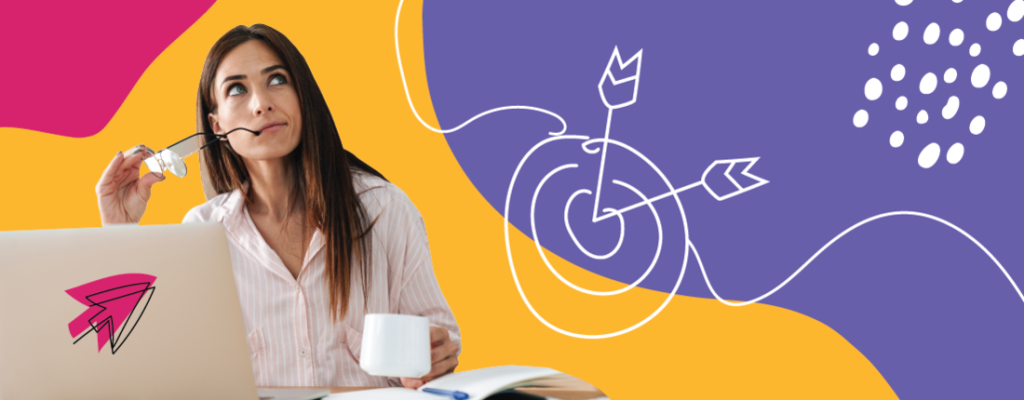Whether you’re looking for a career option that brings a lot more freedom to the table or simply want to add an extra income stream to your repertoire, you’re right to be curious about freelancing.
A digital-age freelancer can earn a respectable, rewarding living providing a wide variety of different services to clients of all types and across all industries.
However, no new freelancer should assume one client is as good as another.
It’s important to make sure each potential client is a good fit for your range of expertise, goals, and working style, and asking the right question can help you do that.
Here’s a closer look at some of the essential questions freelancers should ask clients before taking them on.
1. “Have you ever worked with a freelancer before?”
Although there’s nothing wrong with taking on a client who’s brand new to working with freelancers, it’s important to know upfront that’s the situation you’re dealing with.
Clients who are new to working with freelancers are naturally going to have more questions about how the process works, why your services cost what they do, etc.
On the other hand, companies that work consistently with an entire roster of other freelancers are more likely to have a streamlined process for assigning deliverables, issuing payments, and handling milestones.
They’re also well aware of the going market rate for services like yours, why it’s important to pay on time for services rendered, etc.
2. “What type of project do you need me to complete?”
Although some freelancers offer highly specialized services, quite a few wear many hats and offer their clients many different options.
Whichever kind of freelancer you are, you want to know what each new project will require of you.
If you’re a writer, you need to know whether you’re being hired to write blog posts for a company website, generate newsletter content, or compose landing page copy.
Web designers need to know whether they’ll be building a marketing website or putting together an app.
Asking this question helps a client be more specific about what they want, as stopping at “I need a writer” or “I’m looking for a graphic designer” doesn’t really help either of you.
3. “What goals are you looking to achieve with this project?”
When it comes to crucial questions freelancers should ask clients, this is one of the most important.
Asking it is about a lot more than simply showing the client you’re serious about making sure they’re happy with your work. It’s the best way to ensure your services are a good fit for their company.
For example, let’s say a particular client is advertising for a freelance copywriter. However, after asking this question, it’s pretty clear that they really need a combination of writer and SEO expert or a social media manager.
Now you know what you’re getting into and can make an informed decision on what to charge or whether to accept the project at all.
Asking about goals upfront also makes it easier for you to approach a project efficiently.
A freelance writer, for instance, is likely to write very differently for a client looking to strengthen their current marketing funnel than one interested in boosting their SERP rankings.
4. “What is the scope of your project?”
As with factors like project goals and the type of service the client is looking for in the first place, it’s essential to understand the project scope.
After all, one client could mean something entirely different by “I want to hire a freelance blogger to produce ongoing content for my website” than another.
Are you joining a team of other writers who will also be producing content for the same blog, or will you be responsible for all of the content?
Does the client just need you to handle the writing, or do they expect you also to post the content to their website, source images, and market it across social media?
Is this a short-term contract, or does the client need someone to do this indefinitely?
5. “By when do you need this project completed?”
When it comes to questions freelancers should ask clients that really help them zero in on client expectations, this one is a must.
But how you phrase your question is fundamental, as wording things too vaguely — as with “what are your timeframe expectations” — can leave your client feeling confused and helpless.
Guide the conversation by asking questions that help you get to the bottom of the specifics. “When would you like to get started” and “what’s your ideal deadline” are great examples.
Clients are more concerned with deadlines than anything else time-related, so ask questions that help you determine whether you currently have the bandwidth for the project.
6. “What’s your budget for this project?”
Although asking and talking about money can be difficult, especially for anyone new to freelancing, it’s crucial that you get comfortable with it.
There are several good reasons why it’s ideal to open this conversation by getting a client to specify a budget instead of disclosing your rates upfront.
To begin with, serious clients always settle on a budget range before approaching freelancers.
If a client doesn’t have one, it’s a red flag. So is an outright refusal to state a budget when asked, as it could be a sign the client wants to maintain as much control over you as possible.
In the event you run into a client who’s still shopping around for services and is trying to get a read on what their project will cost them, you can quote them a broad range.
Never lock yourself into an estimate until you fully understand the project, its scope, and the client’s end goals.
7. “What are your long-term goals for your company?”
Every client looking to hire a freelancer is doing so for a particular reason that goes well beyond getting a website designed or having some content written for an email outreach campaign.
For example, a client looking for an ace freelance web designer is likely interested in driving sales and generating better-quality leads. The same goes for someone looking for the right copywriter.
Ultimately, running a successful business is about making money. But there are many different elements that go into that equation, like winning an audience’s trust, building a brand identity, and improving search engine rankings.
The sooner you can get a read on what a client’s endgame is (as well as what they think will get them there), the better a job you’ll be able to do on their projects.
Part of being a great freelancer is knowing how to not only listen to what a client says but to read between the lines, as well.
8. “How do you plan on handling payment?”
When it comes to questions freelancers should ask clients about money, this is one of the most important ones many people forget to ask.
How a client pays you is honestly just as important as what they pay you, so definitely bring this up.
These days, most people who hire freelancers or purchase much of anything online use simple, secure payment platforms like PayPal, Stripe, or Venmo to process payments.
However, depending on the type of services you offer, you may still run into people who expect to pay in cash or by check.
All freelancers should decide early on in their careers how they’re most comfortable processing payments and whether there are some types of payments that are more trouble than they’re worth.
For example, it may be prohibitively inconvenient for you to drive to a client’s place of business to collect cash in person or to wait for a check to clear.
9. “This is my working process. Is it a fit for what you have in mind?”
So let’s say you’ve reached a point with a new prospective client where everything looks like a go regarding the project, turnaround time, budget, etc.
This is the point where it’s a good idea to tell the client a bit about how you work, what your process is like, and how you plan to go about completing their project.
Follow up by asking the client their thoughts.
Although this step is mainly a courtesy to bring the client into the loop from the get-go, it’s still a good idea to make sure they know what to expect from you and are okay with everything.
10. “Is there anything else I should know?”
When it comes to questions freelancers should ask clients, this is a good one to close with once you’ve gotten everything else squared away.
It’s your client’s opportunity to speak freely and address any further questions or concerns they might have.
This process is good for both you and them. It ensures you really do know everything you need to know about the client and their project before you officially sign on.
And it leaves your client feeling prioritized and gives them a sense of control regarding the project. If this one goes well, you’re officially ready to onboard your client and add them to your roster.
Now that you know which questions freelancers should ask clients when they’re evaluating them as potential additions to their ongoing rosters, it’s time to learn how and where to meet them.
Although many freelancers eventually develop reliable methods of their own for attracting new clients, a good line-up of reliable platforms to fall back on is also a good idea.
Check out our comprehensive write-up on the best freelance websites for some great ideas on where to start.
Add one or all of these platforms to your client acquisition routine, and prepare to be impressed!








